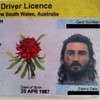Art by Ben Thomson
The timing couldn't have been worse. On the eve of the National Rugby League's finals series - the culmination of 25 weeks of blood, sweat and tears - the credibility of the entire competition has been called in to question after police announced earlier this week they would be conducting their second investigation into match-fixing in the NRL. It will take place over the coming six to 12 months, involving countless interviews with players and officials, along with reviews of every game the Manly Sea Eagles have played in the last two years, as well as a look at the role of at least two other clubs, believed to be the Parramatta Eels and South Sydney Rabbitohs.Police first moved on the allegations in June this year though fresh revelations of of anomalies in bank and betting accounts of a number of people connected to the infamous high profile gambler and former-brothel owner, Eddie 'Everywhere' Hayson have sparked the new enquiry.The issue of match-fixing in sport is a global one and a particularly modern one. Currently the global sports betting industry turns over between 1.5 and 2 trillion dollars a year, putting it in the highest five economies of the world. According to Chris Eaton, a veteran of the Victorian Police Force, Interpol, and now the director of Sports Integrity at the International Centre For Sports Security, "The vast majority of that 1.5 or 2 trillion dollars is illegal or under regulated." Made possible by the boom in online betting, which has allowed the world's biggest betting operations to be run out of murky, unregulated corners of the world where organised crime flourishes and prosecution is near-impossible."They now have the biggest cash cow that organized crime has ever had. It's bigger than narcotics. It's bigger than people trafficking. It's bigger than arms smuggling, because there is virtually no product, no cross-border risk, and it is all digital money immediately paid out in an international environment," Eaton told Vice Sport's Brian Blickelstaff in what is one of the most definitive interviews available on the topic."It couldn't survive, it couldn't have done what it's done, it couldn't have grown as fast as it's grown, it couldn't have been as innovative as it has—the innovation in sport betting is absolutely amazing, because it's a business that turns over billions of dollars a day round the world. And when you introduce that sort of turnover into a business, you have enormously talented people finding ways to attract the main part of the dollar," he says.One of the most active regions in illegal betting operations is SE Asia, just to our north. To get an idea of the criminal mindedness you're dealing with, one figure from a Singaporean syndicate was found to be linked to a third-division Italian goalkeeper who drugged his teammates in a bid to rig a match and repay debts. Their track record for rigging football matches around the world has earned the attention of Interpol. Rugby League, with its low salaries, existing connections to organised crime, relative obscurity, and rampant betting culture, make it an enticing target (not to mention the fact we share a timezone with them allowing them to follow NRL matches in daylight hours).In fact, it's hard to think of a professional sport more ripe for the rigging than the NRL. For too long the game has languished in a strange limbo between amateur and professional. Underpaid, incredibly dangerous, and with an average career span of just 43 games (there's 26 games in a season, excluding finals) players routinely find themselves spat out the wrong end of a system they entered when they were 15. At which point they are left with no skills, no job prospects, a badly battered body, and little in the pocket.Following the announcement of the latest investigation, former rugby league legend, Preston Campbell revealed he was approached to rig matches up to half a dozen times during his career."I did (get approached) and there's other players that would've had people come to them, and say, kick the first field goal and we'll go halves. I think for a lot of people, if you're very desperate, it's very tempting," he told the Seven Network.That Australian Police have gone on the offensive and declared their intention to get to the bottom of it all is admirable. Though it might also be ver naive. The crime they are trying to solve is one of the most sophisticated, borderless and difficult to prosecute in human history."Sport betting is roundly international and global, so you already know that often the people who are committing the betting fraud are not committing it where the match is being fixed. They're probably in Southeast Asia or Central American or Eastern Europe, for instance. And they're defrauding gamblers who are not in the jurisdiction where the match-fix has taken place," explains Eaton."The people involved are of course organized crime, the cartels that are managing both the sporting outcome and the betting fraud. And they're often not in the country where the match is being played."Historically once investigations cross into another country and jurisdiction, they fall over."The problem is, once you have mixed jurisdiction and mixed players from organized crime and sport betting, I think the police and the jurisdictions, the governments, virtually give up."That is a shocking indictment on the commitment of governments and the commitment of national police themselves. Because you are giving organized crime the most massive free kick by letting them fix matches and commit betting fraud with impunity."Australian police will not be able to fix this problem alone. The best they can hope for is to collect a couple of dead canaries at the bottom of it all.
Advertisement
Advertisement
Advertisement
